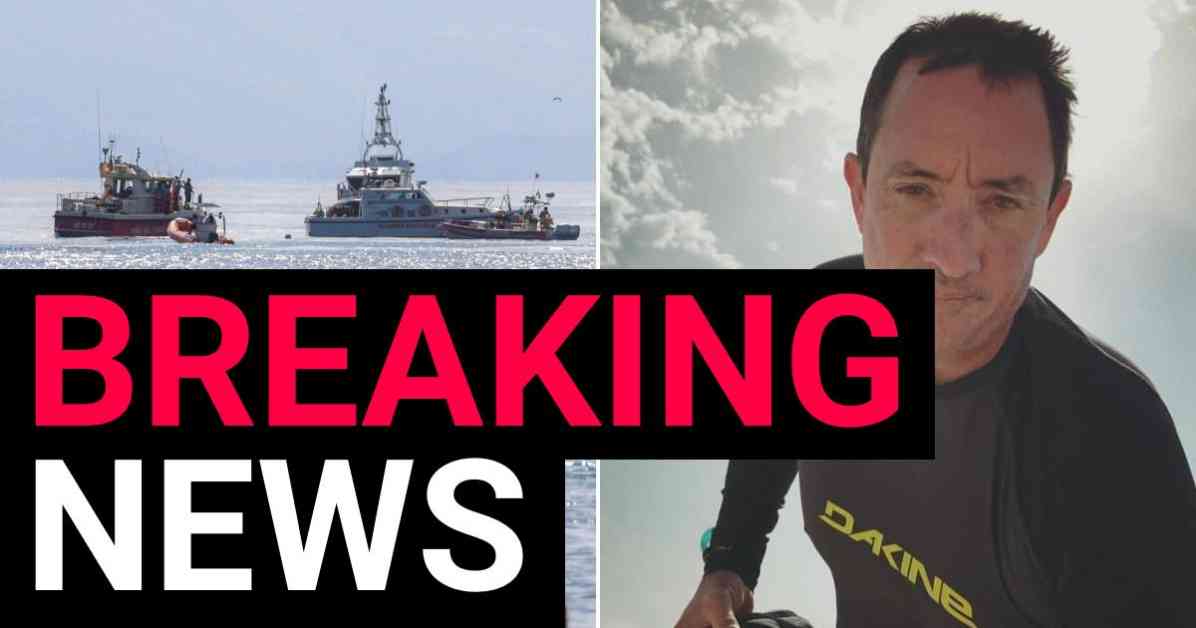Italian authorities are investigating the captain of the Bayesian superyacht, James Cutfield, for manslaughter and shipwreck following a tragic incident in Sicily that claimed the lives of seven people, including British tech billionaire Mike Lynch and his daughter, Hannah. The 56-meter-long vessel, carrying 22 passengers, capsized and sank within minutes after being hit by a sudden storm while anchored off northern Sicily.
Cutfield, a 51-year-old New Zealand national, is at the center of the investigation, along with a crew member who was on duty during the storm and survived the incident. Magistrates have questioned Cutfield for more than two hours, and prosecutors are considering potential charges of multiple manslaughter and causing a shipwreck through negligence.
The tragedy has raised questions about the crew’s preparedness for inclement weather, with a nautical architect involved in the design of the Bayesian suggesting that the yacht may have taken on water due to a side hatch being left open. He emphasized the importance of ensuring all openings are sealed and the anchor is removed before encountering severe weather conditions.
While Cutfield and his surviving crew members have not publicly commented on the disaster, the investigation continues to unfold as authorities seek to determine the circumstances that led to the sinking of the luxury yacht. With 15 people surviving the ordeal, including Lynch’s wife, who owned the Bayesian, the focus remains on accountability and ensuring justice for the victims and their families.
Investigation and Legal Ramifications:
The tragic sinking of the Bayesian has prompted Italian prosecutors to delve into the actions of Captain James Cutfield and the crew members on board at the time of the incident. With high-profile individuals like Mike Lynch and Jonathan Bloomer among the casualties, the stakes are high for the investigation to uncover any potential negligence or malpractice that may have contributed to the disaster.
Authorities are considering charges of manslaughter and shipwreck, as maritime law places full responsibility on the captain for the safety of the ship, crew, and passengers. The investigation is expected to shed light on whether proper protocols were followed, including securing the vessel and ensuring the safety of all on board in the face of adverse weather conditions.
The legal ramifications of the sinking extend beyond the immediate loss of life, as questions arise about the training, preparedness, and decision-making of the crew in navigating challenging sea conditions. As the investigation progresses, it will be crucial to determine the chain of events leading up to the tragedy and hold accountable those responsible for any lapses in judgment or oversight that may have contributed to the fatal outcome.
Lessons Learned and Safety Measures:
The sinking of the Bayesian serves as a stark reminder of the risks inherent in maritime travel, particularly when faced with unpredictable weather patterns and sudden storms. While luxury yachts like the Bayesian are designed to withstand a range of conditions, it is essential for captains and crew members to remain vigilant and proactive in ensuring the safety of all on board.
Safety measures such as regular training drills, emergency preparedness protocols, and thorough inspections of the vessel before setting sail are critical components of preventing accidents at sea. In light of the tragedy in Sicily, there is a renewed focus on the importance of adherence to safety guidelines and best practices to mitigate the risks associated with seafaring.
The maritime industry as a whole can benefit from reviewing and updating safety standards, implementing stricter regulations, and providing ongoing training for crew members to enhance their ability to respond effectively in crisis situations. By learning from past incidents like the sinking of the Bayesian, the industry can work towards a safer and more secure environment for all those who travel by sea.
Impact on the Community and Industry:
The loss of life in the sinking of the Bayesian has reverberated throughout the global community, highlighting the vulnerability of those who embark on luxury yacht journeys and the need for heightened safety measures in the industry. With prominent figures like Mike Lynch and Jonathan Bloomer among the victims, the tragedy has underscored the indiscriminate nature of maritime accidents and the devastating impact they can have on individuals and their families.
Beyond the personal tragedies, the incident has raised concerns about the regulatory oversight of superyachts and the accountability of captains and crew members in ensuring the safety of passengers. As the investigation progresses and legal proceedings unfold, there is an opportunity for the industry to reevaluate its practices and prioritize safety and security in all aspects of maritime travel.
The repercussions of the Bayesian sinking are likely to prompt a broader conversation about risk management, emergency response protocols, and the ethical responsibilities of those entrusted with the lives of others at sea. By addressing these issues head-on and implementing necessary changes, the industry can strive towards a future where such devastating incidents are minimized, and the safety of all who travel by water is prioritized above all else.












